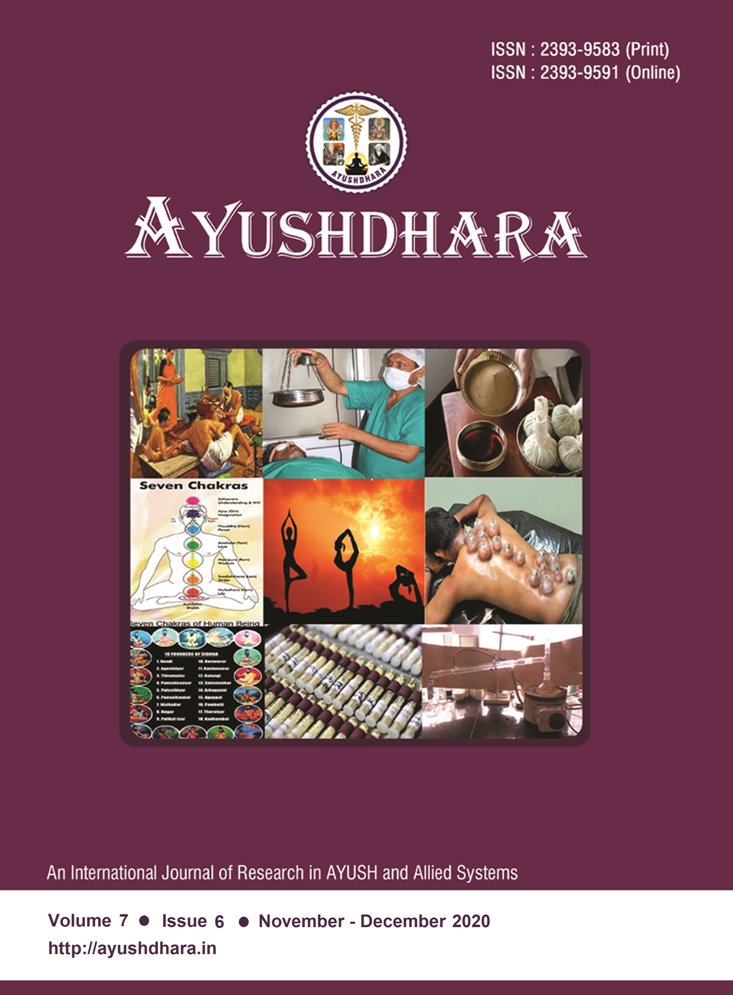A CRITICAL PHYTOCHEMICAL ANALYSIS OF DIFFERENT SOURCES OF SARIVA FROM ITS NATURAL HABITAT
DOI:
https://doi.org/10.47070/ayushdhara.v8i2.710Keywords:
Sariva, Hemidesmus Indicus, Ichnocarpus Frutescens, Cryptolepis Buchnani, Decalepis Hamiltonii, Phytochemical analysis.Abstract
The material medica has over 25000 plant species having therapeutic value, and more than 500 are used in indigenous systems of medicine. Sariva is one such drug having multifaceted activities widely used as coolant, blood purifier. In Ayurvedic classics two varieties have been mentioned, Shweta and Krishna. Regarding the botanical identity of both the varieties, Shweta Sariva is unanimously accepted as Hemidesmus indicus, where as for Krishna Sariva is accepted as both Ichnocarpus frutescens, Cryptolepis buchnani. In the market, by the name of Sariva Decalepis hamiltonii is usually sold. Hence all the four sources were collected from their natural habitat, subjected for phytochemical analysis, including its morphological features and HPTLC was carried out. In this research work it was found that the four sources of Sariva have match with standards mentioned in quality standards of Indian medicinal plants, published by ICMR, New Delhi. Further these sources should be subjected for pharmacological evaluations pertaining Sariva as to confirm the genuine source and best substitute.
Downloads

Published
How to Cite
Issue
Section
Copyright (c) 2021 AYUSHDHARA

This work is licensed under a Creative Commons Attribution-NonCommercial-ShareAlike 4.0 International License.



